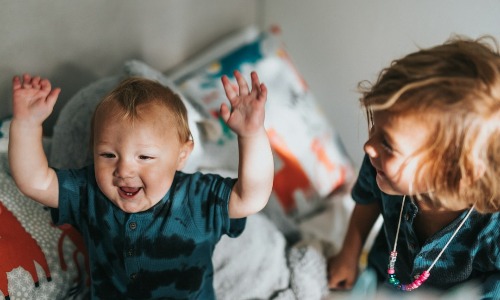Unlocking the Power of Baby Babble: A Guide to When Babies Start Talking
Babies are born into a world of sounds, and as they grow, they embark on an incredible journey of language development. From their first adorable babble to their first meaningful words, each milestone in a baby’s language journey is a cause for celebration. In this article, we’ll explore the fascinating process of when babies start talking, the stages of language development, and how parents can support their baby’s linguistic journey.
The Road to Talking:
Language development in babies is a gradual process that unfolds over several months, laying the foundation for communication and expression. Before babies start talking, they go through a series of key stages:
- Babbling: Around 6 months of age, babies begin to experiment with sounds, producing repetitive syllables like “ba,” “da,” and “ma.” This babbling serves as a crucial precursor to speech, helping babies develop the muscle control and coordination needed for articulation.
- Sound Recognition: Between 7 to 9 months, babies start to recognize and respond to familiar sounds and words, such as their own name or simple commands like “clap” or “wave.” This stage marks the beginning of their ability to understand language.
- Gestures and Nonverbal Communication: Long before they start talking, babies communicate through gestures, facial expressions, and body language. They may point, wave, or use other nonverbal cues to express their needs and desires.
- First Words: Between 10 to 14 months, most babies utter their first recognizable words, typically simple nouns like “mama,” “dada,” “ball,” or “dog.” These early words may be imprecise in pronunciation but mark a significant milestone in their language development.
- Vocabulary Expansion: Once babies start talking, their vocabulary expands rapidly. They learn new words through exposure and repetition, gradually incorporating them into their growing repertoire of language.
Supporting Your Baby’s Language Journey:
As parents, there are several ways you can support your baby’s language development:
- Engage in Conversation: Talk to your baby regularly, narrating your daily activities and responding to their sounds and gestures with enthusiasm. This helps expose them to a rich variety of language sounds and patterns.
- Read Aloud: Make reading a part of your daily routine, sharing age-appropriate books with your baby and engaging them in interactive storytelling. Reading aloud helps build vocabulary, comprehension, and a love for language.
- Respond Positively: Encourage your baby’s attempts at communication by responding to their sounds, gestures, and attempts at speech with warmth and encouragement. Let them know that their efforts are valued and appreciated.
- Create a Language-Rich Environment: Surround your baby with opportunities to hear and interact with language throughout the day, whether it’s through music, nursery rhymes, or everyday activities like mealtime or bath time.
Conclusion:
The journey of when babies start talking is a remarkable and exciting time in their development, marked by exploration, discovery, and communication. By understanding the stages of language development and providing a supportive and nurturing environment, parents can help unlock the power of baby babble and set the stage for a lifetime of language and learning. So, embrace the babble, celebrate the first words, and cherish every moment of your baby’s linguistic journey.



bookmarked!!, I love your site!